Masterminding the company is CEO Dan Lee, who just celebrated his seven-year anniversary in that role. He made his name in the industry as Steve Wynn’s right-hand man at Mirage Resorts, someone who is able to suss out a deal when it is not immediately obvious. A Cornell University alumnus, Lee cut his teeth as a securities analyst on Wall Street at Drexel Burnham Lambert and CS First Boston. He also spent seven years as CEO of Pinnacle Entertainment, during which time it crafted such industry-leading properties as L’Auberge du Lac and L’Auberge Baton Rouge.
We spoke with him from Full House headquarters in Summerlin, Nevada. What kind of brand identity do you strive for at Full House Resorts?
Where there’s pros and cons, on the pro side most of our customers live a short drive from us. So if they live in Cincinnati, they’re a half an hour drive from our property in Rising Sun. If they live in Colorado Springs, they’re 45 minutes from our property in Cripple Creek, Colorado, and so on. The regional casinos have that convenience factor. Many of our customers come once a week or once a month. They can get to our casino as fast as they can get to the airport, park their car, and get into the terminal and fly to Las Vegas. So if one is primarily interested in playing a slot machine, we’re a heck of a lot more convenient for the people in each of our markets than is Las Vegas.
How did Full House weather the pandemic and are you operating at full scale now?
The answer to the second question is yes. Weathering the pandemic was actually very interesting. First, it was an area of big concern for us, as it was for everybody. All of a sudden we were shut down: The regulators required us to close for almost 90 days. It varied a little bit from market to market as to when we could reopen and how but we were effectively completely shut down for almost 90 days. Full House is a public company. We had debt. We still have to pay interest on the debt and other costs like real estate taxes. Frankly and sadly, we had to lay off almost all of our employees. We kept the employees who would be most critical to reopening and a few security employees. But we laid off over 95 percent of our employees and didn’t really have a choice.
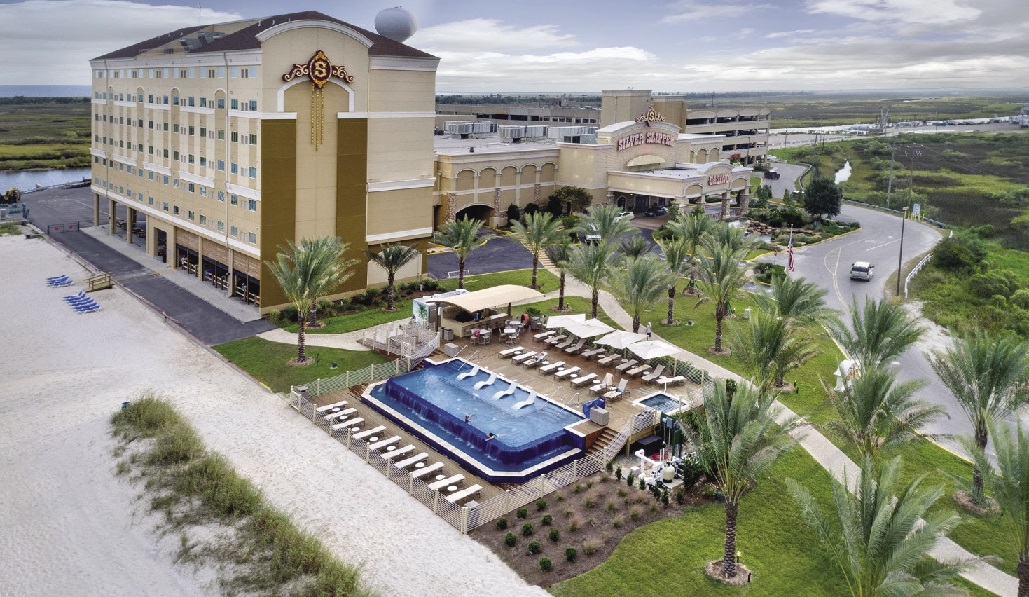
We had just started construction on a parking garage in Colorado and had raised the money to build it, so we had roughly $20 million in the bank. We quickly stopped construction because we wanted to make sure we could survive. One could complete the parking garage but then end up filing bankruptcy because then the casinos aren’t open. That doesn’t do anybody any good.
I remember at one point … I was listening to something on the radio this morning on how much politics intrudes on this whole pandemic, when it really shouldn’t. For example, some 30 percent of the country has refused to get vaccinated. Well, an awful lot of that is driven by politics. The likelihood of having been vaccinated is much higher if you’re a Democrat than if you’re a Republican. So people are playing with their health based on their politics, which is sad. But I remember in Indiana, for example, when the disease was first discovered, we were trying to take measures where we’d be allowed to continue to operate. So we were installing hand-sanitizing machines and taking people’s temperature at the door.
We were disabling every other slot machine so people weren’t sitting close to each other. The state of Ohio, which is next door to Indiana, had come out with a set of rules for the casinos similar to what I just said: Keep everybody six feet apart and all that stuff. It’s actually quite possible to enforce or encourage “social distancing” within a casino. But they mandated that churches and schools close. In the science of it that makes sense. When one goes to church one generally sits in a pew and you’re usually not six feet apart. Then there’s singing involved. A casino, on the other hand, if you turn off every other slot machine or otherwise keep the slot machines six feet apart it’s relatively easy to maintain social distancing. It’s not really an unsafe place.
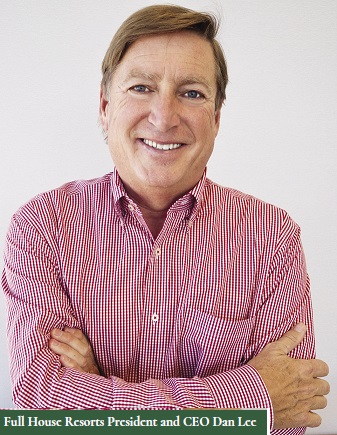
And I remember there was an editorial in the newspaper in Ohio that said, “Well, why can you not allow us to worship or go to school but you’re allowing these casinos to continue to operate?” When I read that editorial, I thought, “Oh, crap.” Sure enough, the next day Ohio came out an closed all the casinos and I think the day after that Indiana closed all its casinos. To some extent, the closures and restrictions reflected politics as much as science. Then, as we were allowed to reopen, some jurisdictions allowed table games to operate while others didn’t. This didn’t make sense to me either; it’s far more difficult to operate socially distant table games than slot machines. Just think about all the chips changing hands. Anyway, we took that 90-day closure period to reexamine how we operated. The timing was a little bit fortuitous because we had just installed the Konami slot-management system.
We already had it in Mississippi but we put it in our properties in Indiana and Colorado. That system provides us far better data of who’s playing your slot machines and how they’re playing. It’s also a better customer experience: Their points and free play are on the screen, they don’t have to go stand in line at a desk to redeem their free play and all this stuff. We had just put it in just prior to the pandemic and, quite honestly, didn’t really understand how it worked. Since we had better data, we started to figure out which one of our customers we’re making money on and which ones we aren’t. We found out that we had a lot of customers that we were upside down on. We comped them so much in buffets and hotel rooms that we weren’t making money on them. And then we had other customers, very important customers, who we found we weren’t paying enough attention to. So we revamped our marketing policies and our players clubs to reflect all that.
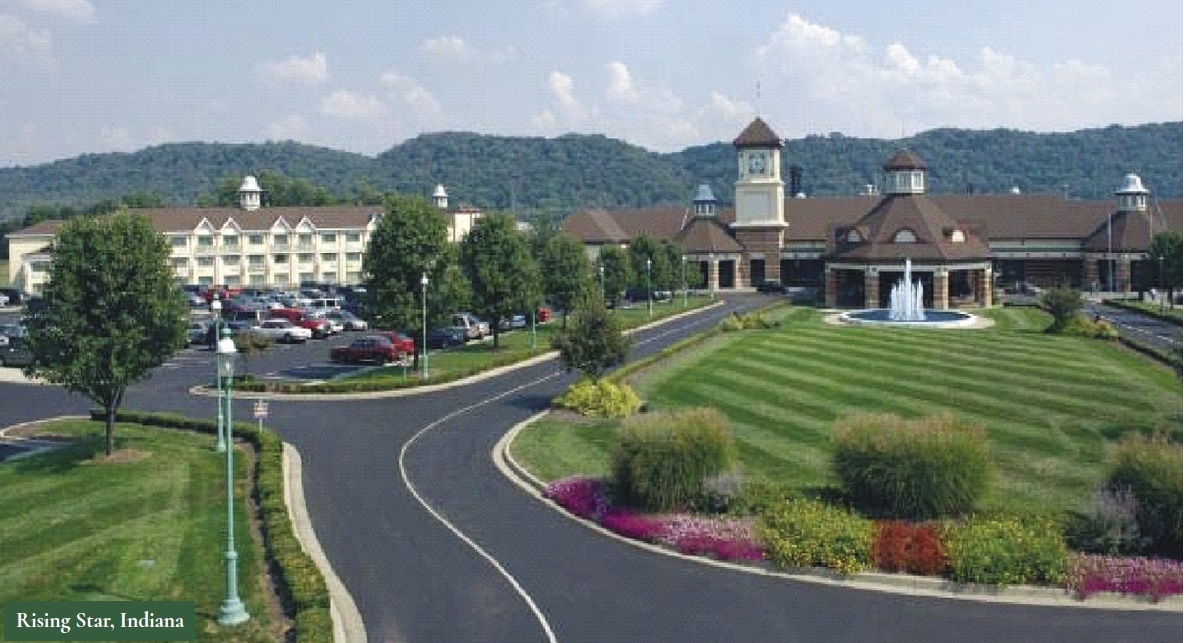
Then when it was time to reopen, we said, “Let’s reopen very carefully. We don’t know if customers are going to show up. Let’s be very careful about what restaurants we reopen and what the hours of operation are. Because we could lose a lot of money fast if we reopen full-bore and customers don’t show up.” Well, we found that customers did show up. The customers were smart. They realized that if you go to a casino and play a slot machine, it can be a safe experience in a pandemic because you can kind of keep away from everybody else. For example, with the Konami system, when a customer is done playing and takes his or her card out, the machine would shut down until an employee came and sanitized the machine. If you saw a machine that was on, that meant it was sanitized.
In the restaurants we had to space everybody out, so we didn’t have nearly the restaurant capacity. That actually allowed us to get rid of some sacred cows that we’d had for a very long time—promotions and ways of operating that people were afraid to do anything about, including myself. We said, “What have we got to lose at this point?” So for example, $5 blackjack tables had been unprofitable for a long time. If somebody bets $5 at blackjack the house edge is typically two percent. If you bet $5 dollars we expect to win 10 cents. If you have a full table, you’re getting 60 cents a hand on maybe 50 hands an hour. From that you have to pay the dealer and the relief dealer.
Then you’ve got supervisors and pit bosses, and you’re giving customers comps and by the time you add it all up you’re not making money at $5 a hand. You’re certainly not making money at $5 a hand if you’re not limiting to three people at the table. Under the temporary Covid rule, the dealer makes the same but now you only have three people sitting at the table. So we just made the decision that when we reopened we’re not going to offer $5 tables. And we don’t. To this day we don’t. What we did do, during the period of time we were closed, is we installed more of the video-simulated blackjack tables where one can play blackjack but with a computer-simulated dealer rather than a live dealer.
So if you want to play $5 blackjack, you have to do it at a simulated table. If you want the live dealer it’s a $15 table and up. Some of the outcomes of that were rather interesting. First, our customers adapted readily.
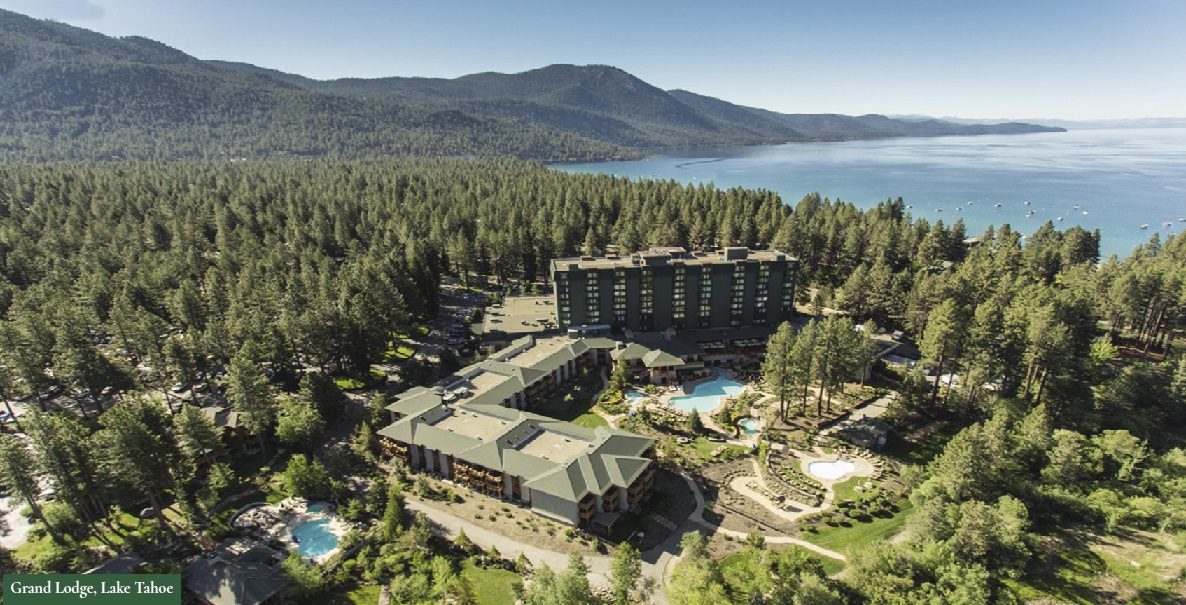
They either shifted to the machine or they stepped up what they were gambling. Our revenues ended up being about the same and we did it with fewer dealers. The dealers we do have are now making a lot more in tips because somebody playing $15 a hand is likely to tip more than somebody playing $5 a hand. So we don’t have as many dealers but the dealers we have are making more money in general. We’re also making more money in general because we’re not trying to operate games that are unprofitable. We also made changes at our restaurant. For example, our property in Cripple Creek had offered a 49-cent breakfast for some 25 years. That was a real breakfast with eggs, bacon, coffee, orange juice … and it was 49 cents. Obviously it was a loss leader. When I pointed out how much lost every month by offering an essentially free breakfast the property management would counter, “That’s the secret of our success. That’s why people come to us. You can’t eliminate that.” I’d been at Cripple Creek and I’d walk into the little coffee shop that had this, and every morning I’d see the same people sitting there. They were locals.
I didn’t know well enough to know whether they were people who play slot machines or not but I thought it was kind of interesting that we were serving almost a free breakfast to a lot of the same people every morning. So we didn’t offer the 49-cent breakfast. It turned out we had very few people living in Cripple Creek who were gambling enough to justify us giving them free breakfast every morning. [Laughs] So we eliminated it and it did not affect our slot play at all.
In Mississippi we offered a two-for-one buffet midweek. And we said, “We’re not going to do that with our limited capacity.” It had no impact on our slot
revenue. In Indiana we operated a buffet that lost $2 million a year. It was a big, expensive buffet to operate and did not have enough covers to to make it efficient.
We just said, “We’re not going to reopen the buffet.” At first we weren’t allowed to reopen it, because it’s harder to control the virus at a buffet than a normal restaurant. So we weren’t allowed to reopen it and our casino revenues were fine. Today we could operate it and we’ve chosen not to. Because that buffet historically lost money. In essence we came out of the pandemic as smarter operators, to be honest, and our profitability has been significantly better, double what it was before the pandemic.
Your next big thing is Chamonix. You’ve said it will be the biggest thing to hit Cripple Creek since the discovery of gold. What can we expect to see?
That’s correct. They originally legalized gambling in Colorado with a $5 maximum bet. All of the casinos that exist today in Cripple Creek were built during that era. A casino can make money on a $5 machine but it doesn’t allow the casino to offer a nice hotel, to operate nice restaurants, where the rooms and meals are often comped. Recognize that when people gamble, they do it for a sense of risk and an opportunity to win. Well, if all you can bet is $5, that’s not very exciting to a wealthy person. So they would fly to Las Vegas instead of going to Cripple Creek. The law was changed a few years ago and the maximum went to $100 per bet. Then, last spring, betting limits were eliminated completely. So now, all of a sudden, one can offer restaurants, nice hotel rooms and all that stuff, appealing to both the historic clientele but also a new, higher-end customer.
There’s a similar community called Black Hawk, which is an hour from Denver. We’re an hour from Colorado Springs. And in Black Hawk, first Ameristar and now Monarch have built nice hotels and they’re doing very, very well. So we’re planning to do the same thing for Colorado Springs, where Cripple Creek can appeal to a whole different strata of people who want a nicer hotel room, who might gamble enough to be comped in that room or they’re willing to pay for it. But it’s a nice hotel. It’s got a lot of meeting-room space, a spa, heated swimming pool.
It’s a true resort experience whereas in Cripple Creek today there’s nothing that offers such. It’s odd because Colorado Springs is a pretty big tourist destination on its own. The Broadmoor Hotel in Colorado Springs is, I believe, the largest five-star hotel in the country other than the ones in Las Vegas. It has a very robust meeting and convention business, and we’re aiming to be kind of a small version of that up in the mountains.
You’re also expanding Silver Slipper in Mississippi. How is that going and what are the environmental challenges involved?
The way that property is situated, it didn’t set itself up well to add another hotel tower. When it was built, they didn’t envision adding hotel towers at a later date. There was only one direction to go and it’s out over the Gulf of Mexico. Building on a pier over the Gulf of Mexico is actually not that much different from building on land. That part of Mississippi is all mud—it’s essentially the delta of the Mississippi River. So whether one builds on land or over the water, one must building on pilings driven 100 feet down into the mud until you can’t pound them down any more. You have to do that whether it’s on land or out over the water. The only question is whether the pile driver is mounted on a truck or on a barge. But getting the permission to do it is complicated. That’s because the bottom of the Gulf of Mexico, near the coast, is owned by the State of Mississippi.
So the first thing you have to do is negotiate a lease with the State, which we have done. Then you have to get the approval of the Corps of Engineers and of different environmental groups, because you’re affecting wetlands. We’re in the process of seeking those approvals. For example, to fill in wetlands one usually has to find more pristine wetlands, buy them and put them into trust so the ducks and other wildlife will always have a place to go. and then you’re allowed to fill in your wetlands. So we’re in the process of seeking those approvals and sometimes it can be a long process.
How are your prospects in Waukegan and how do you rate the competition?
We’re one of two finalists at this point. The other finalist is a private company, backed by a Canadian private equity firm. We are far more experienced at developing casinos. I believe our casino is larger and far more interesting than their design. Their design is pretty “Plain Jane.” Ours is targeting a higher-end clientele from throughout Chicagoland. Our casino would produce more tax revenues, more jobs. From the viewpoint of the Illinois Gaming Board, they can rest easy that the money is there. The actual individual making the competing proposal is a local person from Waukegan who used to be a state senator. Then he had a slot-route operation that he sold. He paired up with a management company out of Las Vegas who’s developed a couple of tribal casinos and one commercial casino in Sioux City, Iowa. So you have a Canadian private equity firm, a local former state senator and a small management firm out of Las Vegas. I’m biased but I think we are more capable on every count of developing something terrific for the State of Illinois and the City of Waukegan. In fact the city had hired an independent consultant who rated all the different proposals, based on, as I recall 10 different criteria. We were the leader on nine of the 10 criteria.
What are Full House’s plans, if any, vis-a-vis online gaming?
Online gaming is not yet legal in any of the states in which we operate. But I think it will be and so it’s something we’re looking at, trying to figure out how to do it. Online sports betting is legal where we operate, but we chose to enter contracts with third parties to participate in that business. In that area, FanDuel, DraftKings and some others have been very aggressively marketing, trying to build a large roster of customers and I think they’re spending so much on marketing that they’re upside down on their income statement. DraftKings has had a high valuation on the stock market, for example, but loses money. But I think it might be possible to do it in a different way and operate online sports betting primarily for your own customers. That allows us to coordinate better. For example, if somebody was our customer on a sports-betting website, and they win enough points we could invite them for a stay in Indiana where they could play golf for a weekend. It’s something we’re studying but for the moment we’re not in a hurry.
How is Full House adapting to the cashless revolution in gaming?
I don’t know if it’s a revolution as much as evolution. I’ve been around the industry long enough that I remember when MGM Grand first opened on the Strip in 1993. Originally it had a section of its casino that did not use coins in the slot machines—the first major place to attempt this. It failed. People were accustomed to the coins, carrying the bucket around and wearing gloves so your hands wouldn’t get dirty.
Operationally, it was kind of a nightmare. The casino had to collect all those coins and put them back into rolls of quarters and then you had people on the floor
selling rolls of quarters in exchange for $10 bills. It was a big hassle. So eventually IGT created the TITO ticket and reintroduced what had failed at MGM. But
they reintroduced it in a way that became the industry norm, so nobody operates with coins anymore.
I would love to get rid of chips at the tables. Chips are a hassle, too, and why have them? The slot machine companies are just coming out with systems now that we’re looking pretty carefully at where the dealer can give a TITO ticket to the customer when he or she cashes out. The customer can then redeem that TITO ticket at any one of the redemption machines on the floor. Or put it in a slot machine. A lot of this has been encouraged by the pandemic because when one thinks of reopening table games in a pandemic, there’s a real issue of how to keep the chips clean. It was never resolved. Some states required you to shut the table once in a while just to disinfect all the chips and so on. If anybody at that table has Covid, even if everyone is wearing masks, people’s hands are all over the chips going back and forth. That’s an issue.
Cruise ships have had cashless gaming for quite some time. It’s not a matter of technology. The technology’s there. It’s getting the regulators comfortable. They have been hesitant to allow somebody to just download money from their bank account into a slot machine because they’re afraid somebody could more easily lose more than they can afford to lose. On the other hand, if you don’t allow that to happen then somehow you have a swapping of credit cards and cash and so on, which is not pandemic-friendly. So you have to offset one with the other. Maybe you find other ways to make sure that people do not lose more than they can afford to lose but allow the casino to become more of a cashless experience...because that’s healthier for all involved.
You’ve been very generous with your time. Thank you. Take care.
Thank you, too
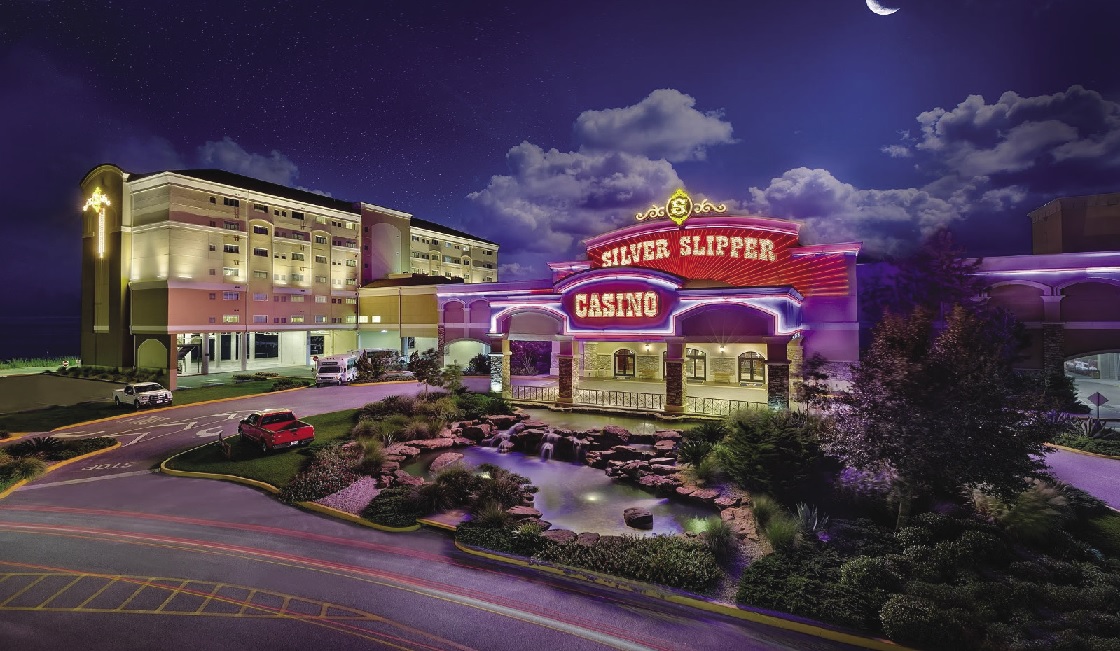




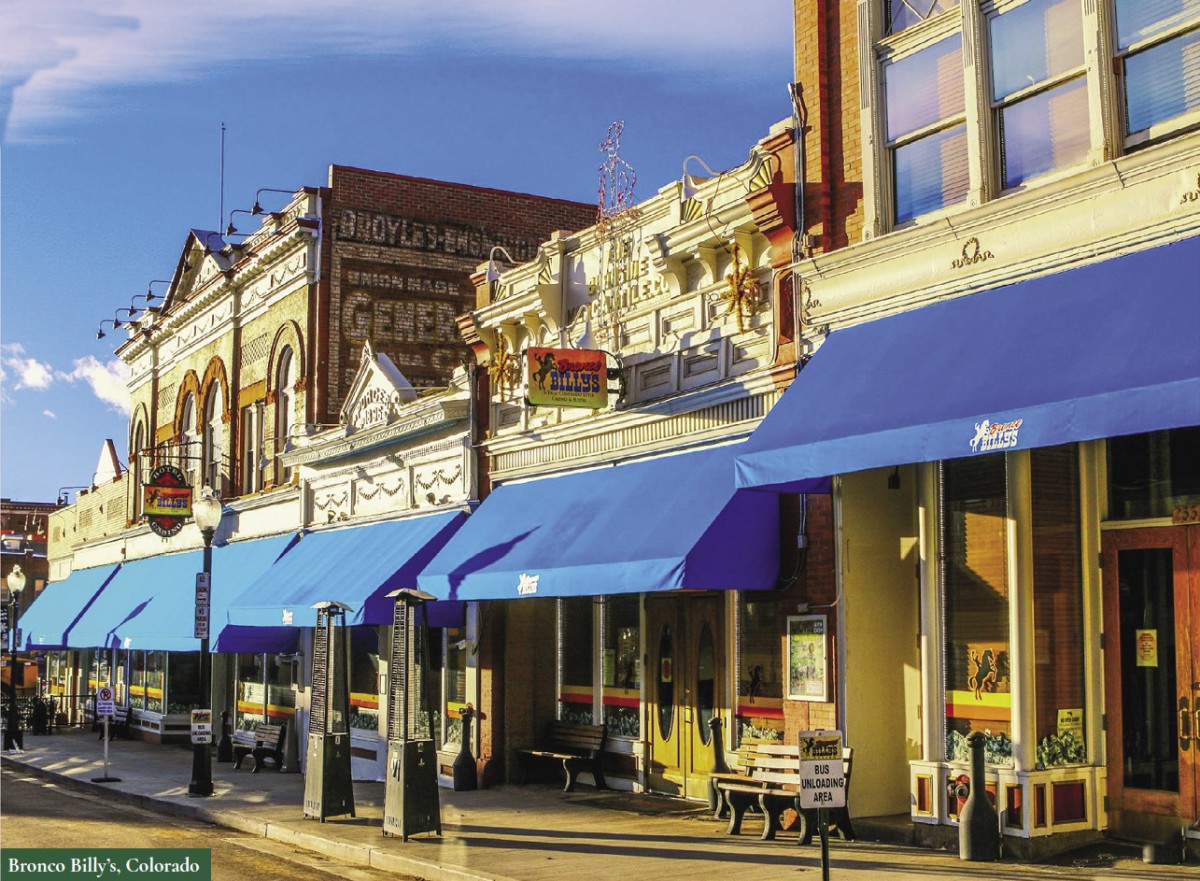
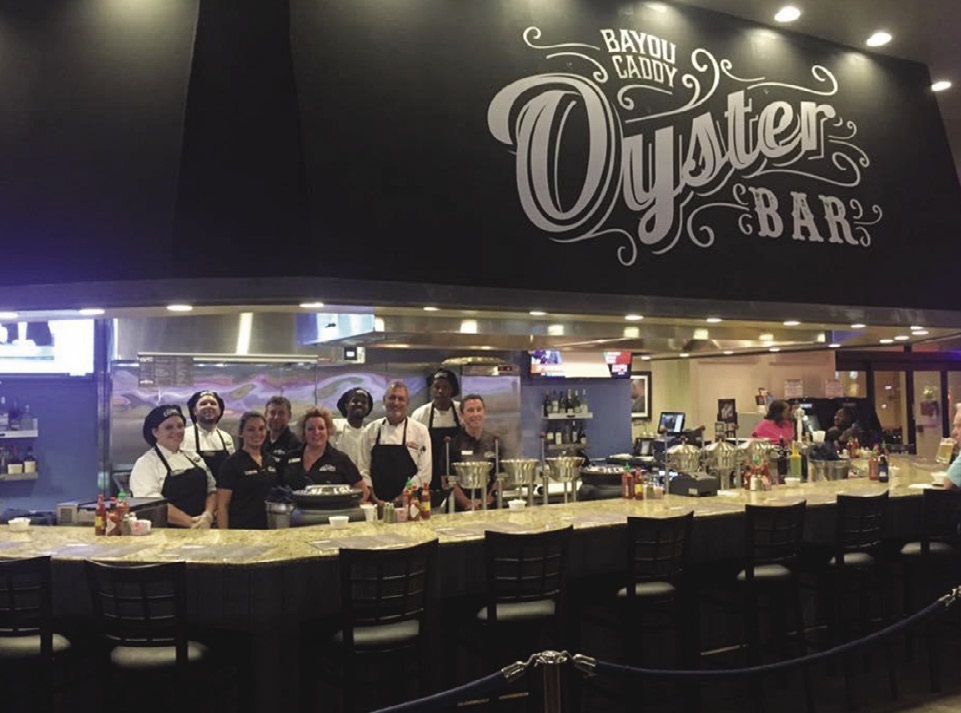

.gif)















